Shepherd's-Purse
- Mustard (Brassicaceae family):
- Capsella bursa-pastoris (L.) Medik.
- EPPO code:
- CAPBP
- Other names:
- Poverty weed, beggar tick, shepherd’s heart, pick purse
Species information
- Lifecycle:
- Winter annual or biennial.
- Propagation:
- Reproduces by seed.
- Emergence:
- Early spring.
- Habitat:
- Native to Europe. Found throughout Ontario in fields, gardens, roadsides and waste areas. Most commonly found in winter cereals.
- Competitiveness:
- In Sweden, shepherd's purse is one of the most detrimental species affecting winter cereal yields (Milberg and Hallgren, 2004).
Identification clues
Seedling
- Cotyledons:
- Oblong small (3–6 mm long) with very short petiole.
Leaves
- First leaves:
- Rounded to oval with entire margins and forming a rosette.
- Mature leaves:
- Arranged as a rosette. Leaves generally deeply divided, covered with star shaped hairs on surface that are most visible with a magnifying glass.
Mature plant
- Stem:
- Erect and with few branches, 10–60 cm tall.
- Flowers:
- Small cluster of white flowers each with 4 small narrower sepals and 4 large broad petals arranged in a cross formation; seedpods (silicles) are heart-shaped.
- Seeds:
- Oblong, 1 mm long and orange to reddish brown in colour.
- Roots:
- Taproot with secondary fibrous roots.
Often mistaken for
I know it's not Dandelion because Shepherd’s-purse does not excrete a milky juice when its leaf tissue is torn; its mature rosette leaves are more deeply divided and the leaf surface covered in small, star- shaped hairs.
I know it's not Stinkweed because Shepherd’s-purse lacks the “chive-like” odour of stinkweed; its leaves are deeply divided and with a surface covered in small, star-shaped hairs compared to the slightly toothed and smooth leaf surface of stinkweed.
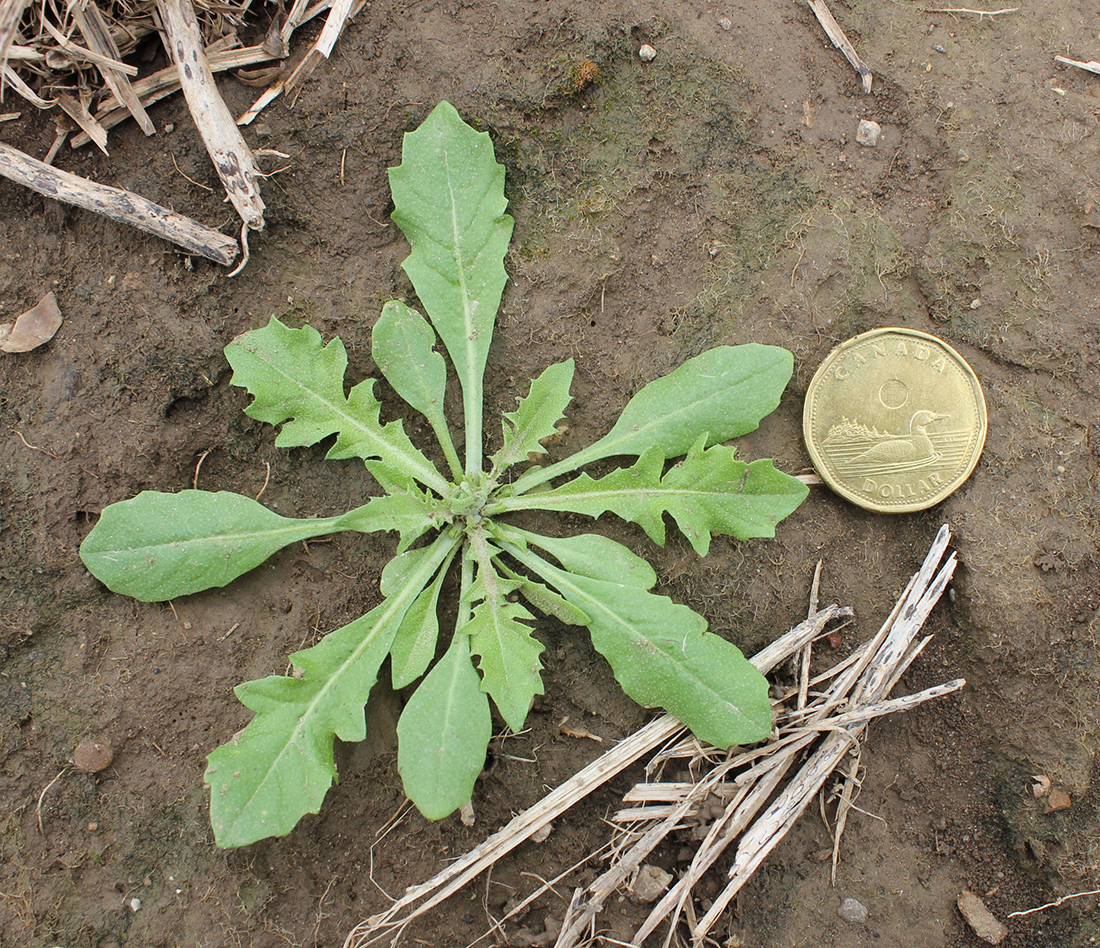
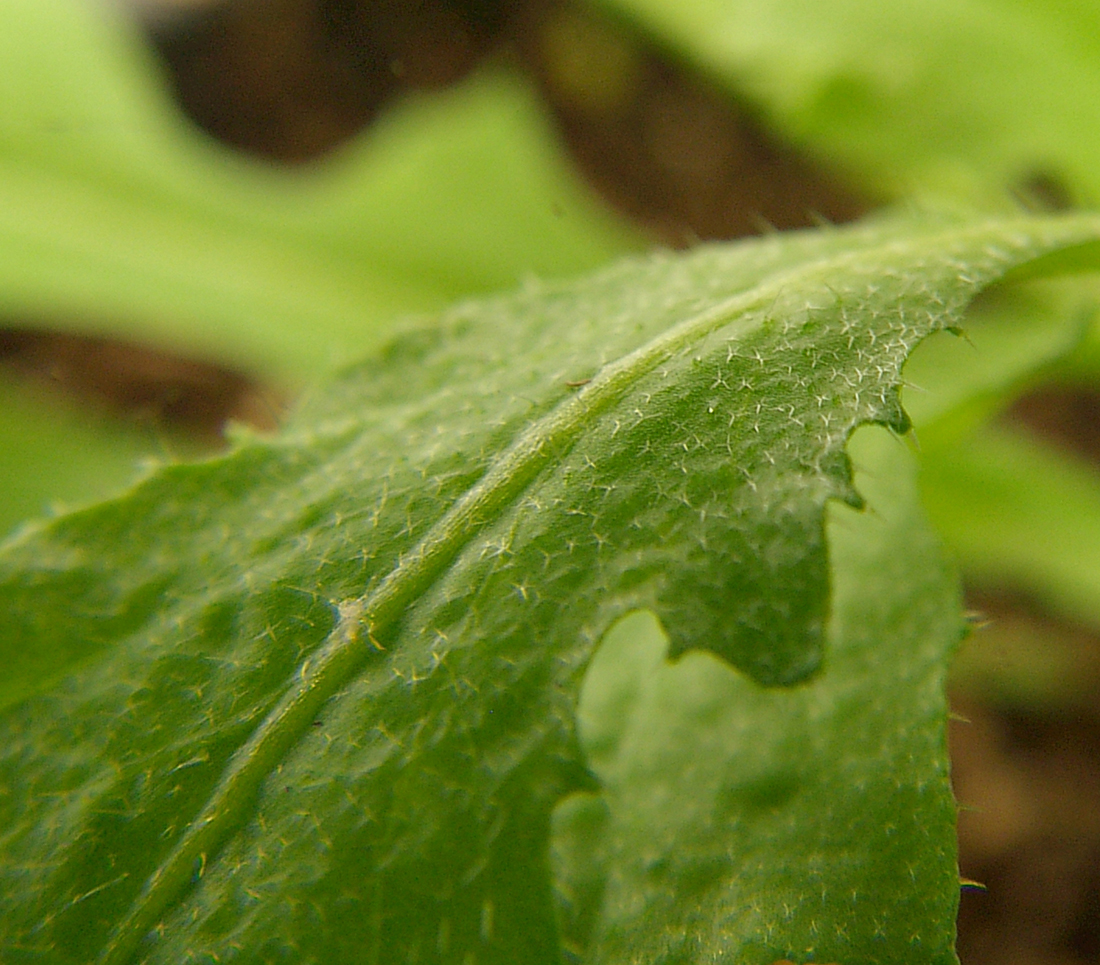
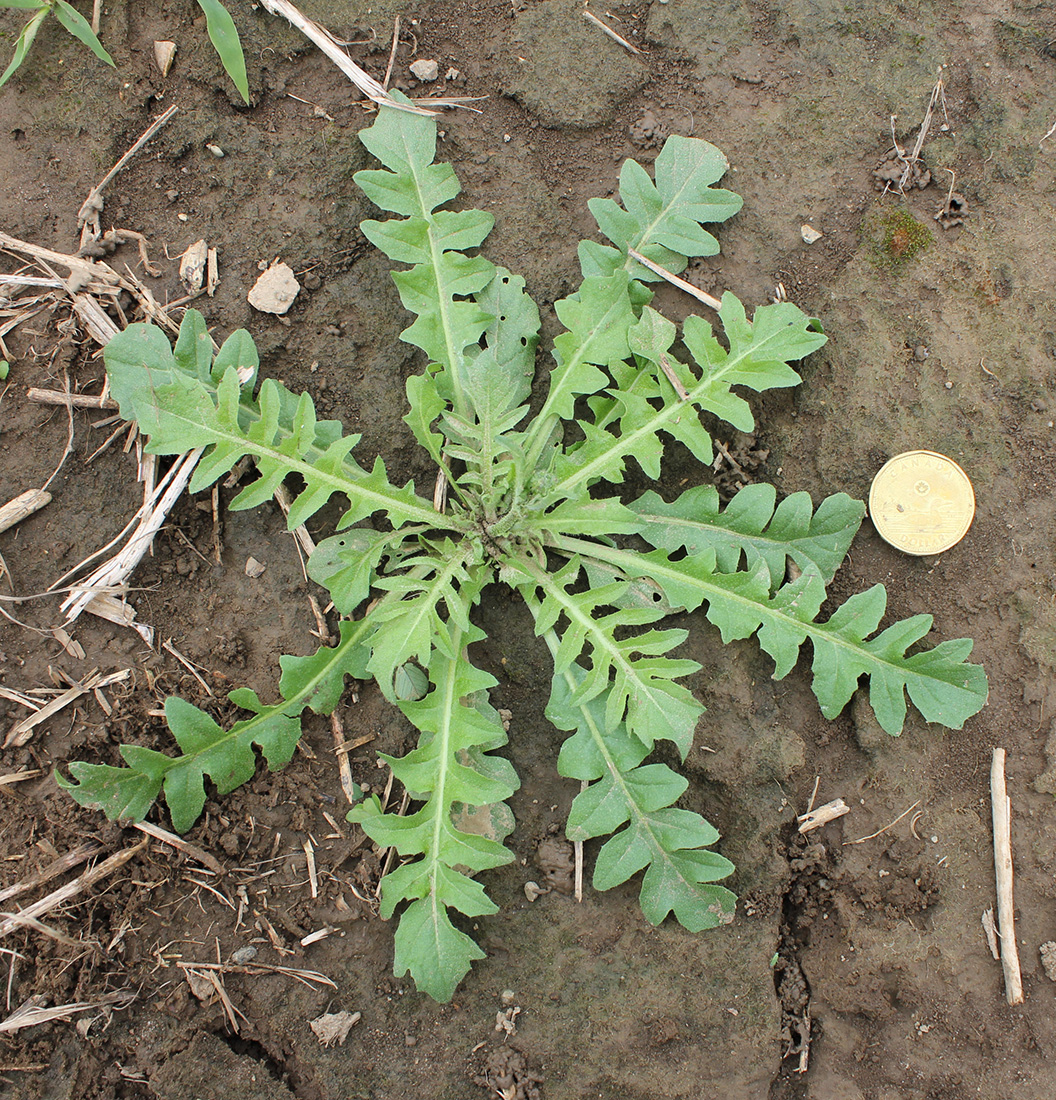
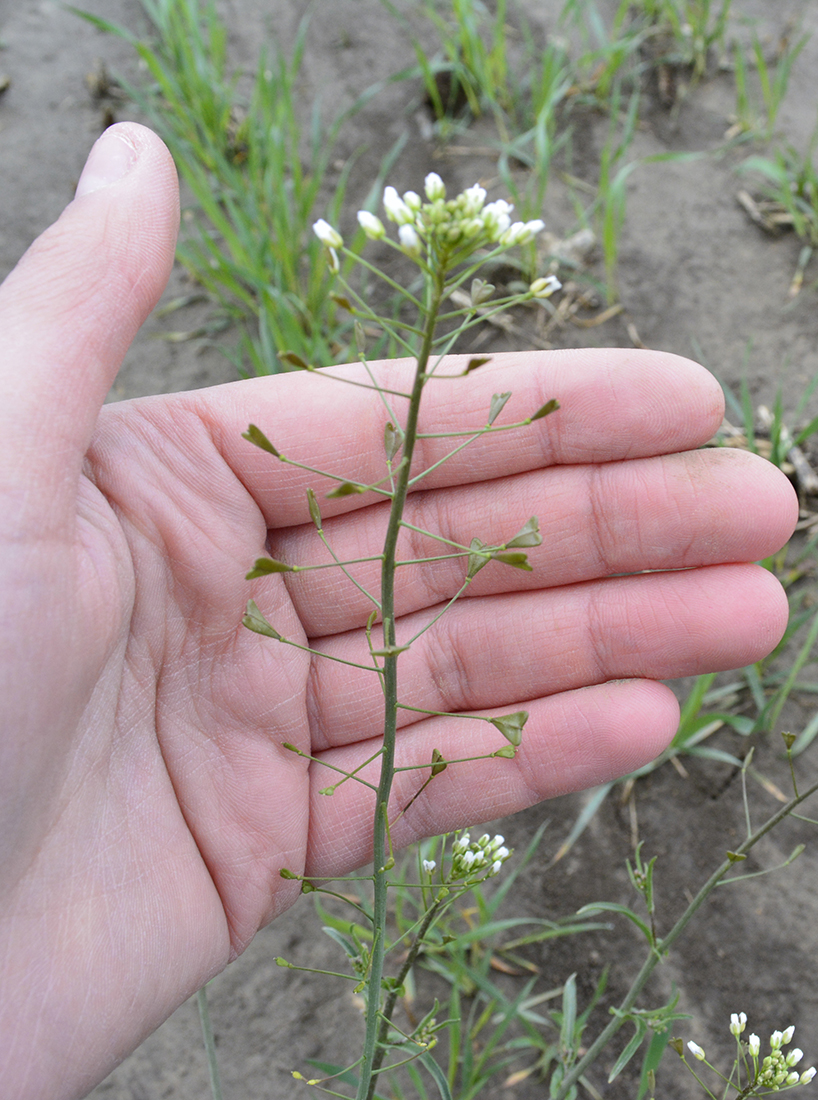
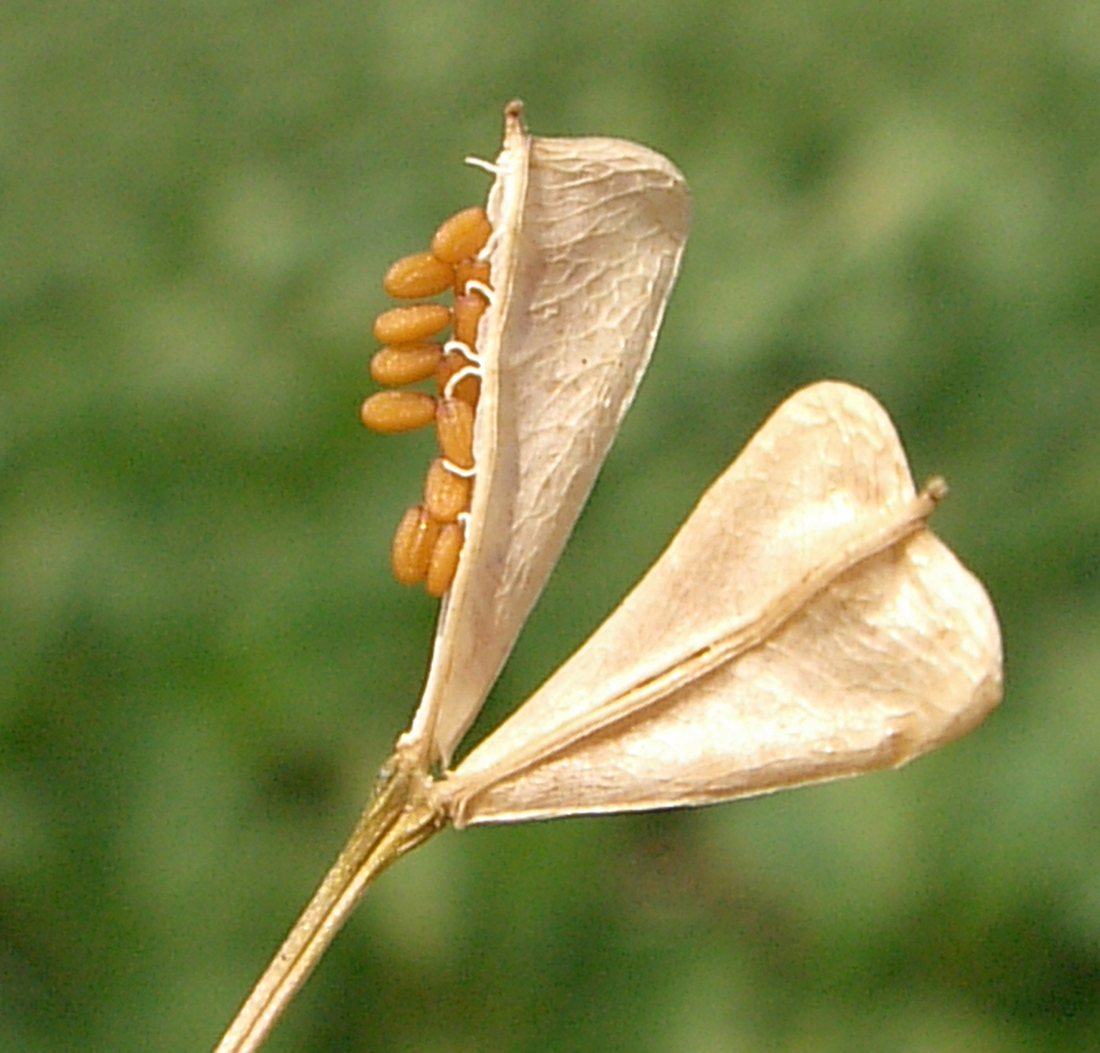
Updated: January 13, 2023
Published: January 13, 2023